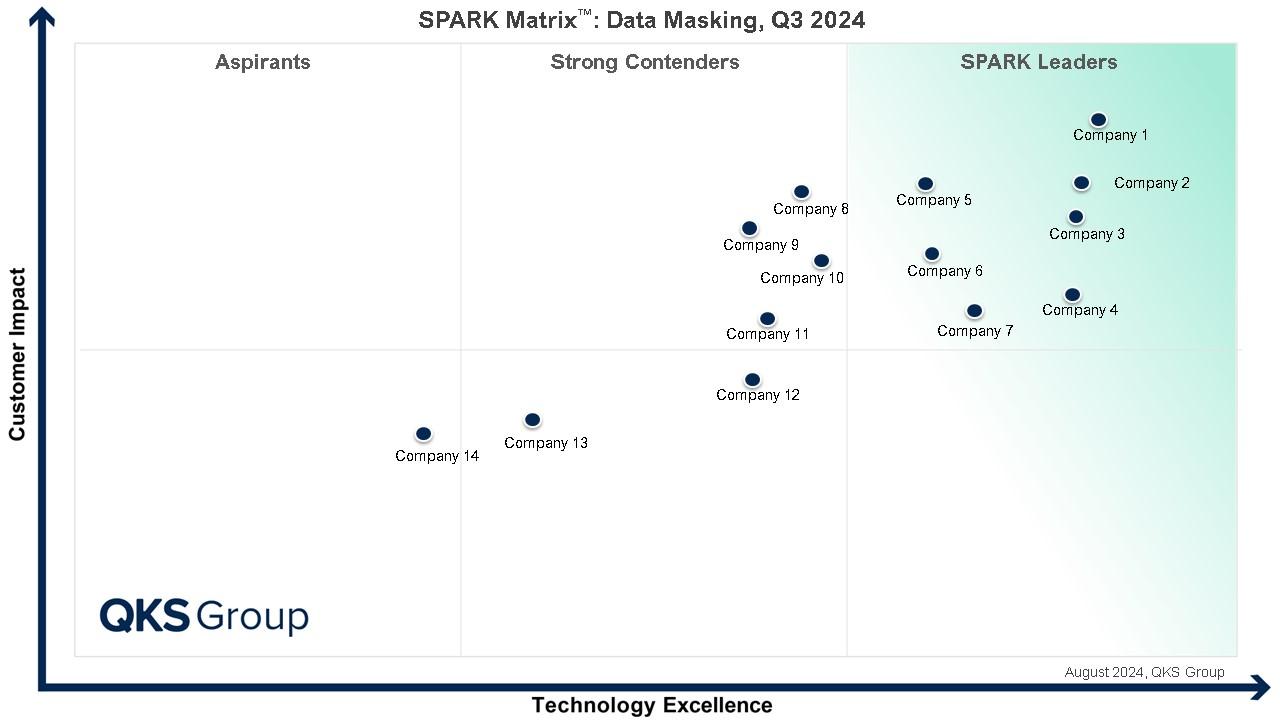QKS Group’s latest Data Masking Market research provides an in-depth analysis of the global ecosystem, highlighting both short-term and long-term growth opportunities, along with a comprehensive future market outlook. As data privacy regulations tighten and cyber threats grow increasingly sophisticated, organizations are prioritizing solutions that can safeguard sensitive data without compromising usability. This research offers strategic insights for vendors aiming to refine their growth strategies and buyers seeking to evaluate vendor capabilities, differentiation, and market positioning.
Executive Overview
The Data Masking market continues to evolve rapidly as enterprises adopt more advanced data protection frameworks. QKS Group’s research emphasizes the critical role of data masking solutions in enabling safe access to sensitive data across development, testing, analytics, and production environments. This includes tools that protect structured, semi-structured, and unstructured data against unauthorized exposure.
According to Sristi Basu, Analyst at QKS Group, “Data masking tools are pivotal in ensuring data privacy and regulatory compliance by effectively obfuscating sensitive information across development, testing, and analytical environments. These tools help mitigate the risks of data breaches and unauthorized access, thereby maintaining the integrity and confidentiality of crucial data assets.”
Market Definition and Technology Trends
Data Masking refers to the process of obfuscating sensitive data while retaining its functional characteristics for non-production use cases. It is increasingly becoming a cornerstone of modern data protection, regulatory compliance, and privacy engineering.
Key Technology Trends Include:
AI-driven masking automation for accuracy and scalability
Dynamic data masking (DDM) to protect real-time access
Format-preserving obfuscation to maintain usability
Cloud-native masking tools supporting hybrid and multi-cloud architectures
Growing integration with DevOps pipelines to secure data in test environments
Support for Big Data and modern data platforms (Hadoop, NoSQL, cloud warehouses)
These trends underscore the industry’s shift toward intelligent, scalable, and compliance-ready data protection architectures.
Competition Landscape and Analysis
QKS Group’s research features an extensive assessment of leading Data Masking vendors, examining their technology maturity, product capabilities, market presence, and innovation potential. Vendors are evaluated across parameters such as:
Masking techniques (static, dynamic, deterministic, rule-based)
Support for structured & unstructured data
Integration with databases, DevOps tools, and cloud platforms
AI/ML-driven data discovery and classification
Ease of deployment and scalability
Compliance alignment with GDPR, HIPAA, PCI DSS, and other regulations
Key Vendors Covered:
BMC Software, Broadcom, Comforte AG, EPI-USE Labs, IBM, Imperva, Informatica, K2view, Mage Data, Oracle, Privacy Analytics, Redgate Software, SecuPi and Solix Technologies.
The assessment highlights how each vendor differentiates itself through unique capabilities and technology advancements, helping enterprises make informed decision-making.
Competitive Overview and Analysis
The competitive environment in the Data Masking market is shaped by several core differentiators, including:
1. Technology Capabilities
Vendors that offer AI-powered discovery, dynamic masking, and real-time policy enforcement lead the market.
2. Deployment Flexibility
Solutions with cloud-native architectures, hybrid support, and integration with modern analytics platforms show stronger adoption.
3. Scalability & Performance
High-performance masking engines and distributed architectures drive competitive advantage in large enterprises.
4. Compliance & Governance
Vendors offering pre-built compliance templates and robust auditing gain preference in regulated industries.
5. Ecosystem Integration
Seamless integration with DevOps, data warehouses, ETL pipelines, and security tools enhances overall value.
Key Competitive Factors and Technology Differentiators
QKS Group highlights the following key differentiators in vendor evaluation:
· Depth of data discovery and classification
· Advanced masking algorithms and customization
· Support for diverse data environments (cloud, on-prem, hybrid)
· Automation and orchestration capabilities
· Data governance and lineage visibility
· Enterprise scalability and performance metrics
· User experience and manageability
These differentiators play a central role in determining each vendor’s overall competitiveness and future readiness.
The report includes QKS Group’s proprietary SPARK Matrix™, which provides a visual representation and ranking of global Data Masking vendors based on:
· Product excellence
· Market impact
· Technology innovation
· Customer adoption and experience
The SPARK Matrix allows enterprises to easily understand vendor positioning and identify leaders, challengers, and emerging innovators in the Data Masking landscape.
Vendor Profiles
The research provides detailed profiles for each evaluated vendor, covering:
· Company overview
· Product portfolio and key capabilities
· Competitive strengths
· Customer segments and market focus
· Strategic outlook and innovation roadmap
These profiles help organizations compare offerings and select the right partner for their data protection initiatives.



